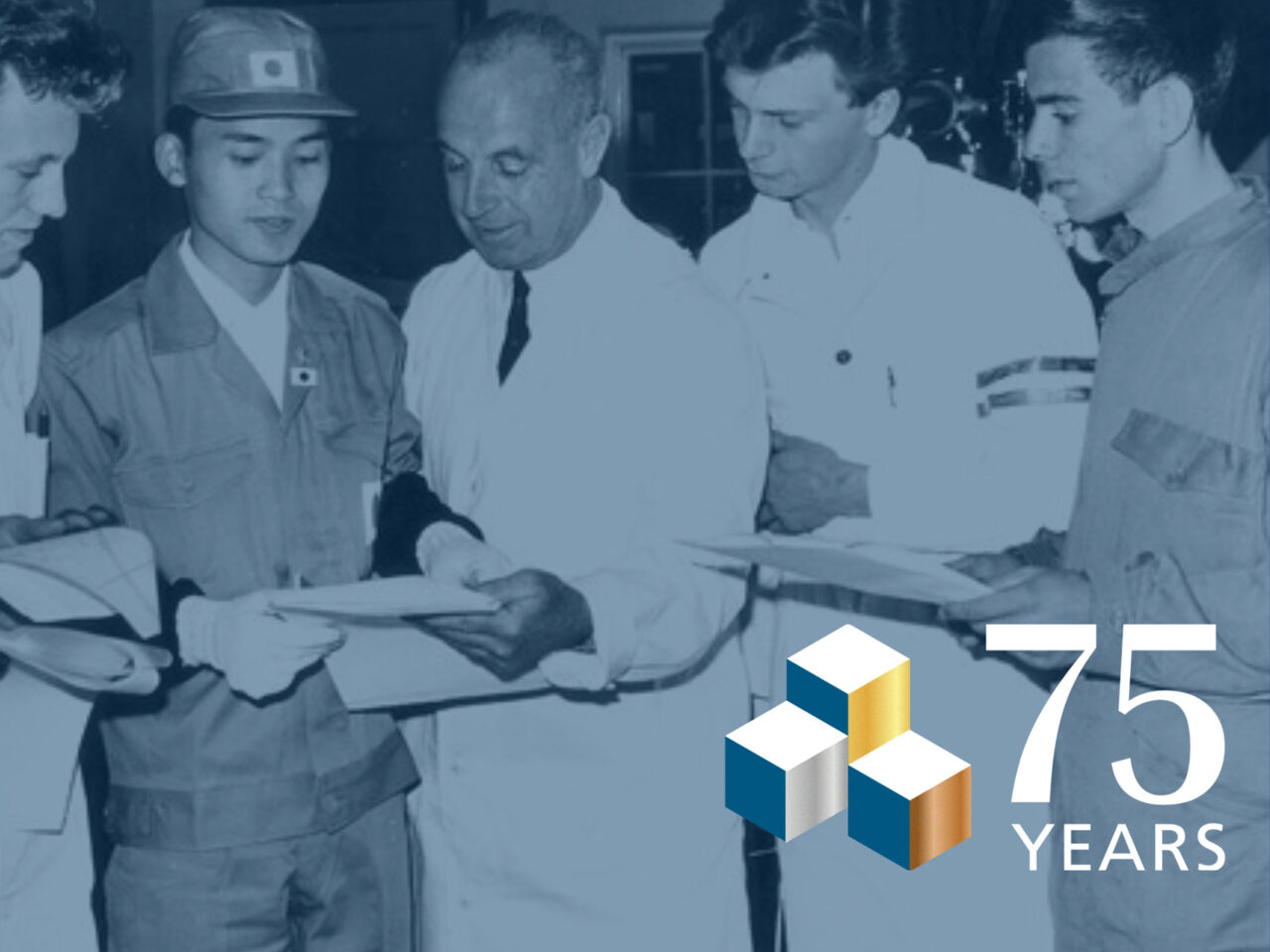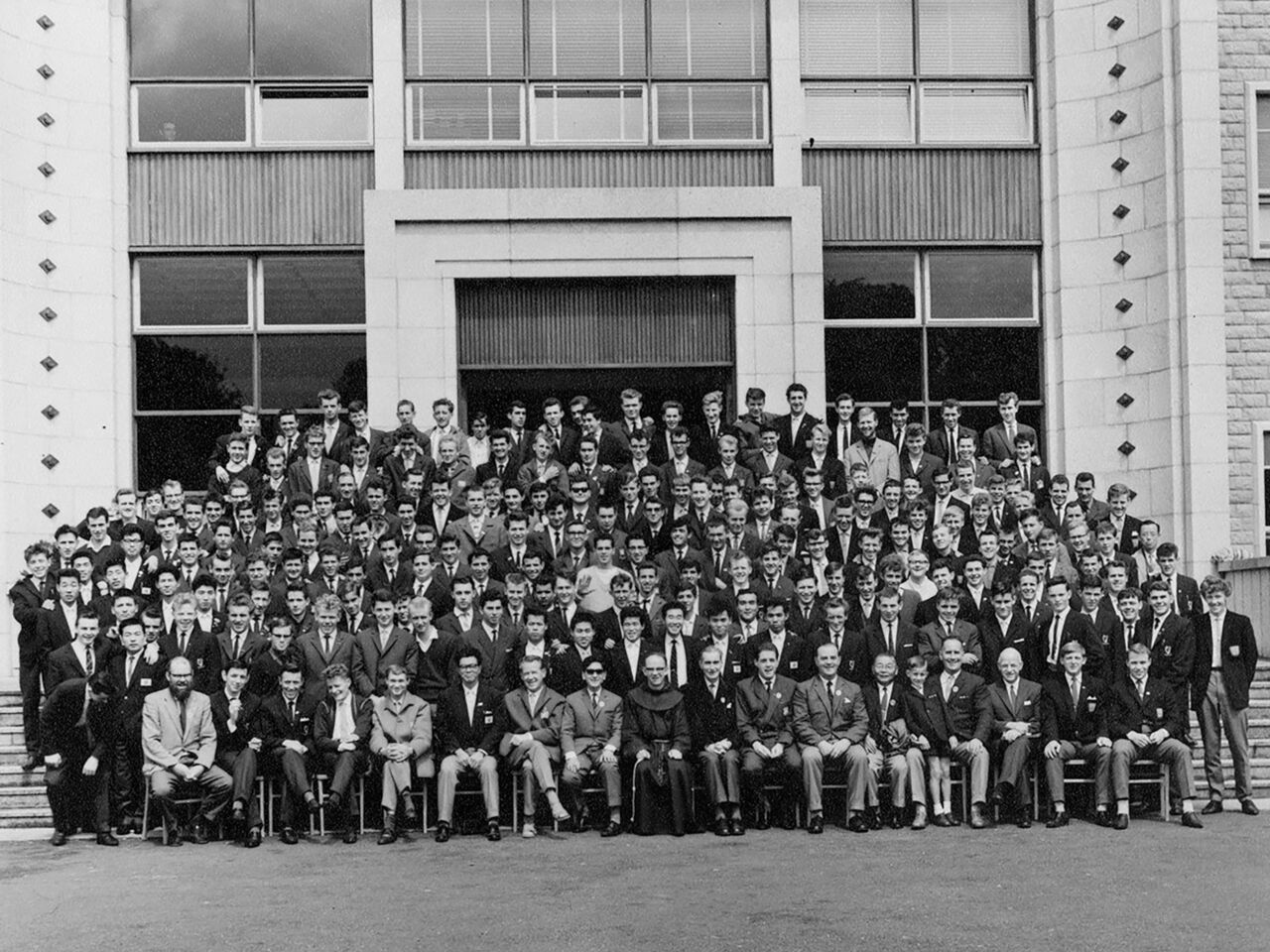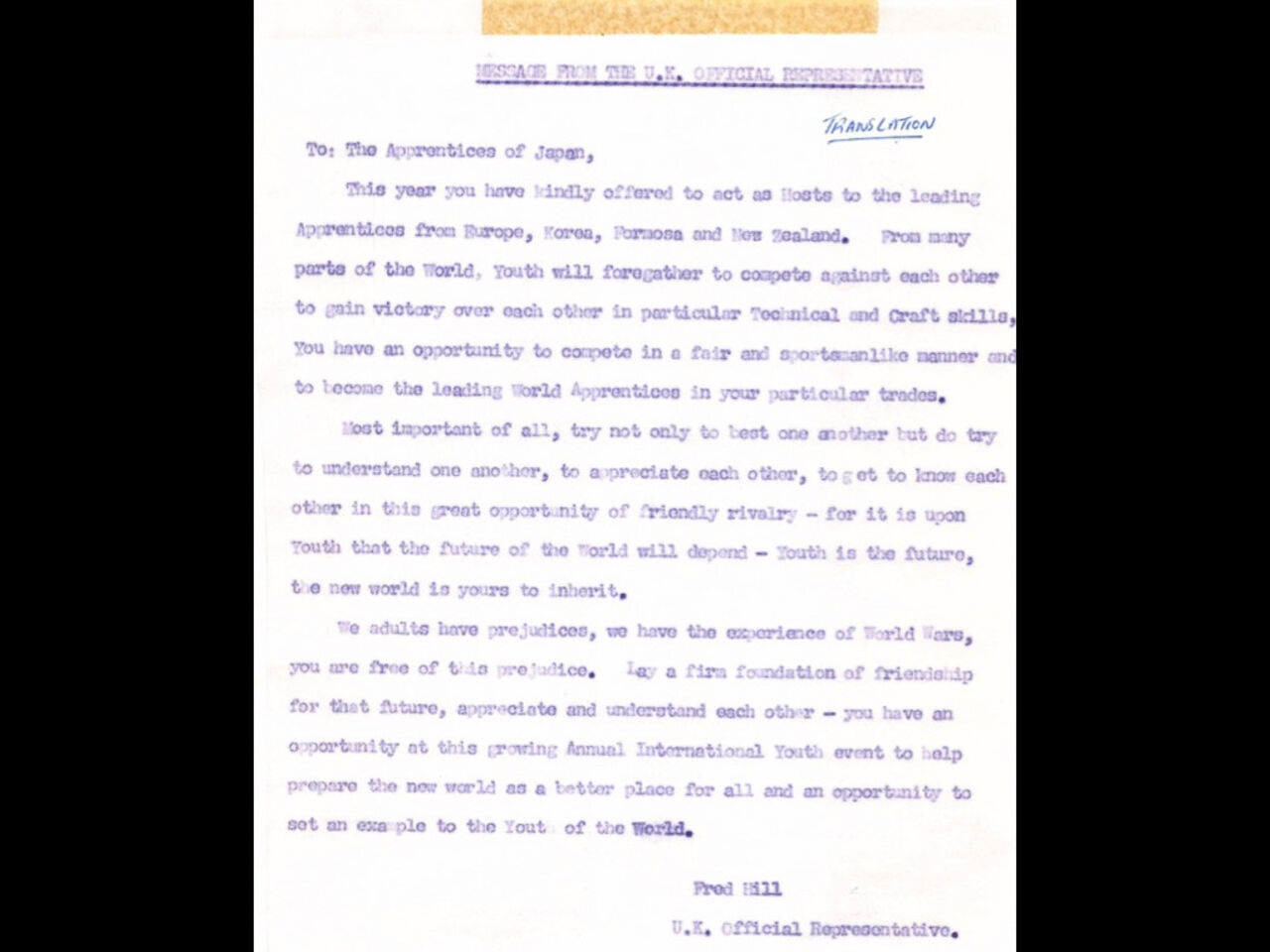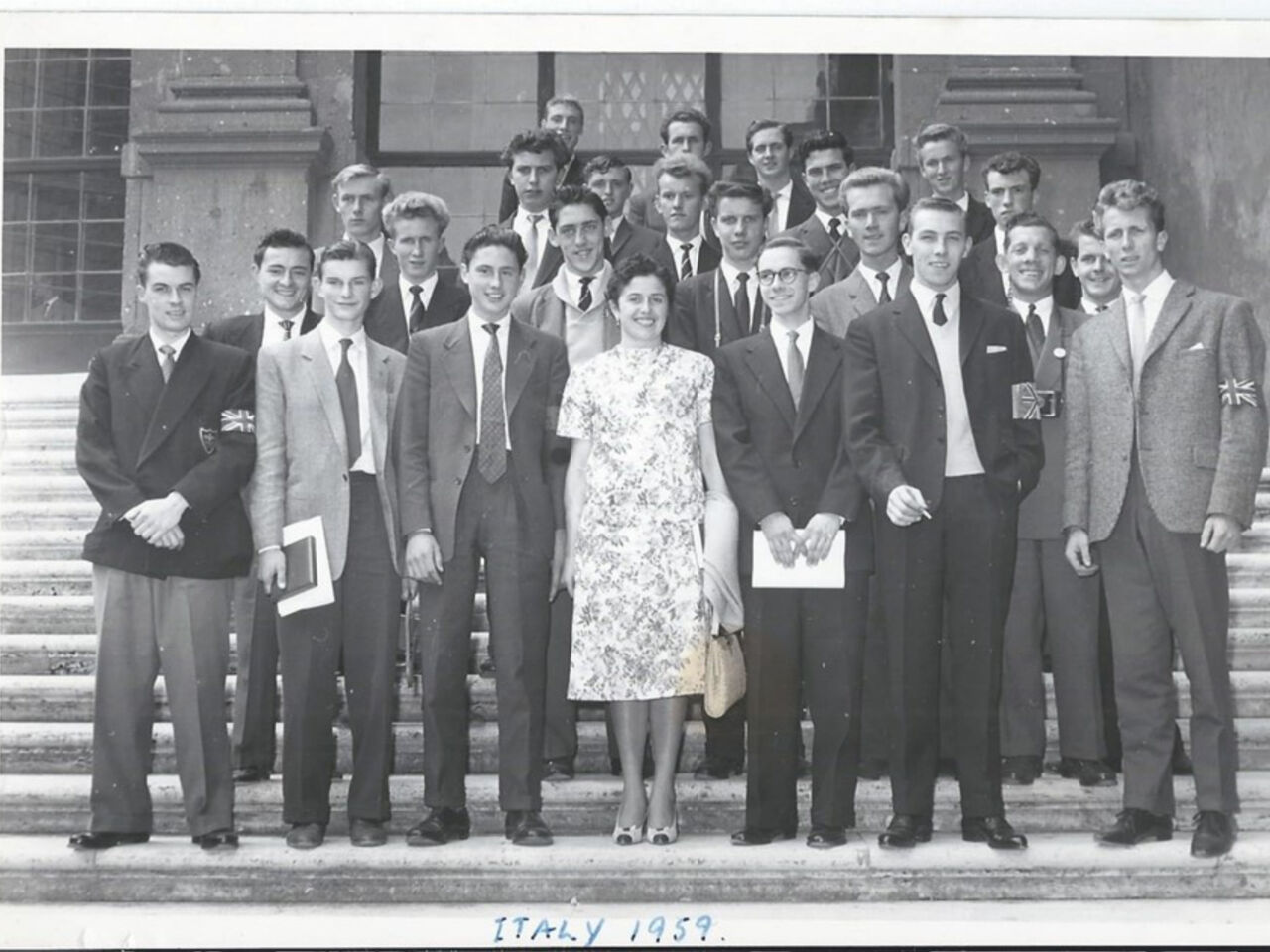25 August 2025
In a transformative era, WorldSkills opened opportunities and minds
WorldSkills has spent 75 years uniting young people through technical excellence and shared purpose, demonstrating that having access to skills can foster a better world.

In 1970, Frederick Hill stood before a group of young apprentices gathered in Tokyo for the 19th International Vocational Training Competition. Representing the United Kingdom, Hill delivered a stirring message to “the apprentices of Japan.” Reflecting on his own generation’s failures – the prejudices that led to war – he urged them to build something better.
“Try not to best one another but do try to understand one another, to appreciate each other, to get to know each other in this great opportunity of friendly rivalry. For it is upon youth that the future of the world will depend, the new world is yours to inherit,” said Hill, a lifelong champion for vocational excellence, and one of the key architects of WorldSkills early expansion.
These words, spoken a quarter-century after the end of the Second World War, captured the spirit that has defined WorldSkills since its inception: a belief that young people, empowered through skills, can shape a more peaceful and cooperative world.
Hill knew this firsthand. A businessman, he first encountered the movement in 1953, when he accompanied his son Douglas to Madrid, where apprentices from five European nations who had recently been at war – France, Germany, Italy, Switzerland, and the United Kingdom – had come together to compete.
Though Douglas arrived in Madrid for the international skills competition without prior registration, the organizers allowed him to demonstrate his skills informally, working on his loom. He was later presented with a commemorative medal in recognition of his participation. These competitions were a rare chance for young people to meet peers from countries that had recently been at war, to share ideas, and to reimagine a world beyond division.
Building on the success of the 1953 competition, the International Vocational Training Organisation (IVTO) was established.
As more nations joined throughout the 1960s and 1970s, the competitions expanded beyond Europe. Events were held in Latin America and Asia, and the movement gradually spread to North America, Australasia, the Middle East, and more recently, Africa. In time, the IVTO became WorldSkills, a name that better reflected its growing reach and inclusive spirit.
From its earliest days, WorldSkills has provided the stage for skilled professionals to shine, as well as a platform for Members to share their expertise and best practices. With the world facing new disruptions – technological, environmental, and geopolitical – skills hold the key to building equitable, sustainable, and peaceful societies. TVET remains one of the few arenas where international cooperation not only persists, but flourishes.
In his editorial published as part of WorldSkills Lyon 2024 Impact Report, French President Emmanuel Macron stated, “Hosting WorldSkills was more than a commitment for France. It was a sign. A sign given to the youth of the whole world, so that they always dare and look to the future with confidence and hope.”
As WorldSkills celebrates its 75th anniversary, its mission has never been more relevant. Progress is hard to achieve alone. Instead it is built through cooperation, shared knowledge, and purpose. Skills development is not only about preparing individuals for jobs — it’s about equipping them with the foundational tools to contribute to their societies.
That vision, championed by pioneers like Frederick and Douglas Hill, lives on today in every young person who steps onto the global stage for skills — not simply to participate, but to connect, learn, and ultimately build a better world.


